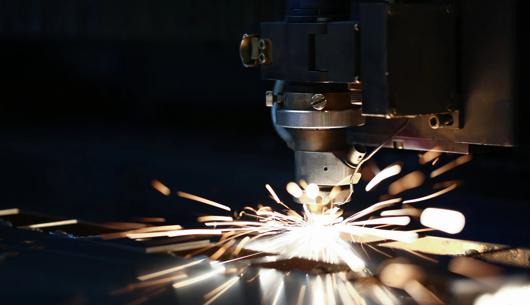The manufacturing sector is a vital component of the global economy, accounting for approximately 50% of UK exports and billions of pounds of imports each year. However, the sector has recently experienced a range of issues that have impacted its operations and profitability. In this article we explore some of the key issues affecting the manufacturing sector and the prospect of a brighter future.
Sector under pressure
The manufacturing sector has faced significant large-scale challenges over the past decade including the COVID-19 pandemic, rising costs and the ongoing war in Ukraine.
The COVID-19 pandemic has had a long-lasting effect on the sector. Arguably the biggest challenge is the widespread disruption of global supply chains, which has led to shortages of raw materials and components needed for production. The pandemic has also resulted in delays in production and delivery, and rising shipping costs for manufacturers to ensure they receive their goods on time. Additionally, the pandemic has caused a shift in consumer demand, with many consumers focusing on essential goods, rather than non-essential items. This has led to reduced demand for certain products, which has further impacted the manufacturing sector with a slow-down in growth.
The sector has also seen an enormous hike in prices owing to the changing geopolitical landscape. These price increases are often linked to the ongoing war in Ukraine and increasing unrest in the Middle East, which has caused fuel and raw material prices to skyrocket, and some trade routes to close resulting in further disruption to supply chains. Businesses which convert raw materials into components and goods have become more costly to run which has wide-ranging effects on all parties involved in the manufacturing process. These increasing costs and reducing demands have caused some businesses to fail and in turn reduced the spectrum of competition in parts of the sector.
New Government - new hope?
The recent UK election win by Labour has come with promises to increase economic growth within the sector on a large scale, with a focus on increasing productivity, reviving industries, particularly steel, and increasing outputs. This includes £7.3bn worth of funding by way of a National Wealth Fund to support businesses across the manufacturing sector. The focus of the fund includes investment in ports, gigafactories and green energies, alongside a promise to restore the 2030 ban on the sale of new petrol and diesel cars. It is hoped that this support will drive the manufacturing sector forward by drawing in private investment to the sector and focusing on innovation of supply chains and sustainability, which is at the top of the agenda of many businesses.
Recently there has been a focus on increasing the in-house capacity of businesses so they can bring previously outsourced and off-shored activities nearshore in Europe, or even in-house where possible. In the UK it has been historically difficult to bring manufacturing work onshore due to the lack of infrastructure and space for mass scale production, however the Government's promise of gigafactories is one way in which this issue may be alleviated, allowing more production to take place on UK soil which should in turn provide a boost to the sector.
Commercial disputes on the rise
Given the above issues, the manufacturing sector is experiencing an increase in commercial disputes. These include claims for breach of contract relating to delays in shipments, which can have a knock-on effect on other contracts. There has also been a significant rise in litigation surrounding sustainability and greenwashing. Additionally, with the move to in-house resourcing, there is scope for claims arising out of termination of long-standing cross border agreements for the supply of goods and labour, and issues resulting from the need to comply with differing international regulations.
To mitigate the risk of legal action, manufacturers must ensure they implement quality control measures, conduct thorough IP searches, and comply with all the necessary regulations so that they are not legally exposed.
Time will tell
It remains to be seen how the changes proposed by the new Government, alongside the ongoing geopolitical tensions, will impact the manufacturing sector. Manufacturers should work with legal counsel to develop a plan to respond to the legal issues that may arise. By taking these steps, manufacturers can protect their operations and profitability in an increasingly complex legal environment.
At Browne Jacobson we are well-equipped to assist manufacturers with their legal issues. With our team of experienced lawyers and deep understanding of the sector, we can provide tailored solutions to meet the unique needs of manufacturing businesses. Contact us today to learn more about how we can assist your organisation.
Contact

Paul Kirkpatrick
Partner
Paul.Kirkpatrick@brownejacobson.com
+44 (0)330 045 2318








































